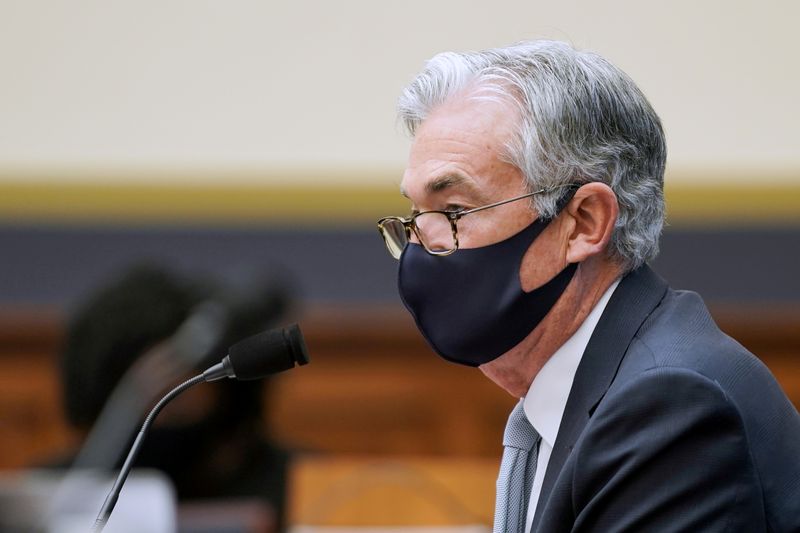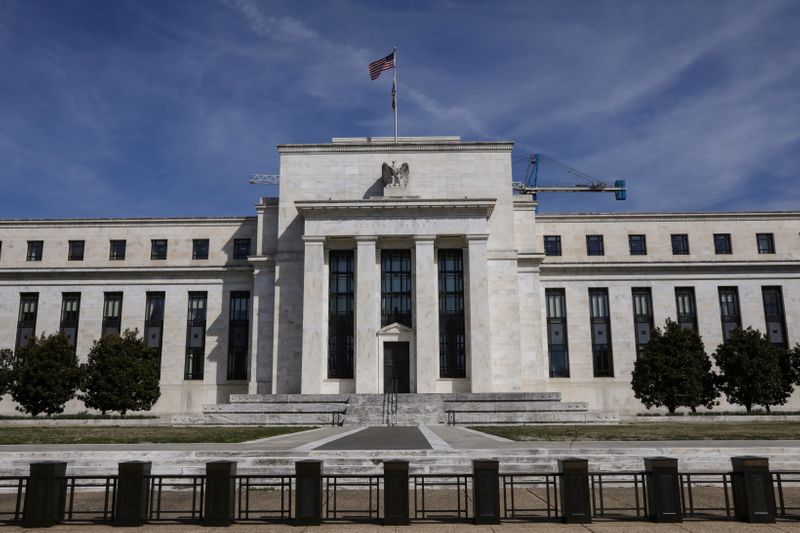By Pete Schroeder and David Henry
WASHINGTON (Reuters) -The largest U.S. banks have enough capital to withstand over $600 billion in losses from a short, sharp economic slump, as well as a moderate longer-lasting downturn, and will be permitted to pay out dividends and buy back stock on a limited basis, the U.S. Federal Reserve said.
The central bank on Friday released the results of its second bank "stress test" for 2020, the first time it has put banks through their paces twice in one year since it began the annual health checks following the decade-ago financial crisis. The Fed had previously barred banks from buying back stock to help them build capital reserves during the coronavirus pandemic.
The relaxed restrictions were met quickly with announcements from some large firms, including JPMorgan Chase (NYSE:JPM) and Goldman Sachs (NYSE:GS), that they planned to buy back stock beginning in the new year.
The results of the second test of 2020, which the Fed pursued to reflect the severe economic impact of the pandemic, found that banks suffered more severe losses than under the previous, pre-pandemic test.
But months of building up reserves helped ensure they were positioned to weather the downturn well, with firms building capital reserves in 2020 despite setting aside nearly $100 billion in loan loss reserves.
The Fed found all firms remained above minimum capital requirements after taking those hypothetical losses, leading the central bank to relax its restrictions on capital payouts by banks, allowing them to buy back stock in the first quarter of 2021, after barring them in June.
"The banking system has been a source of strength during the past year and today’s stress test results confirm that large banks could continue to lend to households and businesses even during a sharply adverse future turn in the economy," said Fed Vice Chairman Randal Quarles in a statement.
Under the new restrictions, a bank would be allowed to pay out dividends and buy back stock so long as such sums did not exceed its net income from the last year. The Fed also announced it would not use the new results to tweak how much it ordered each bank to hold as a "stress capital buffer" following the previous test results.
See FACTBOX for more on how this year's tests have changed
The new leeway from the Fed will send bank analysts off to calculate how much each bank might be able to spend on share buybacks in coming months based on their estimated fourth quarter earnings.
Shortly after the results were released, JPMorgan announced it would begin buying back stock in the first quarter under a new $30-billion repurchase program.
"We are pleased that the results of the Federal Reserve’s latest stress test demonstrate the resilience of the largest US financial institutions in the midst of a devastating pandemic. Based on the results and guidance from the Federal Reserve, we intend to resume share repurchases next quarter," said a Goldman Sachs spokesman in a statement.

Analysts will also be comparing details of loan losses that the Fed estimated with provisions the banks have made this year for losses they expect. Shares of banks that seem to have put aside more reserves than they will likely need could get a lift from the comparisons.
